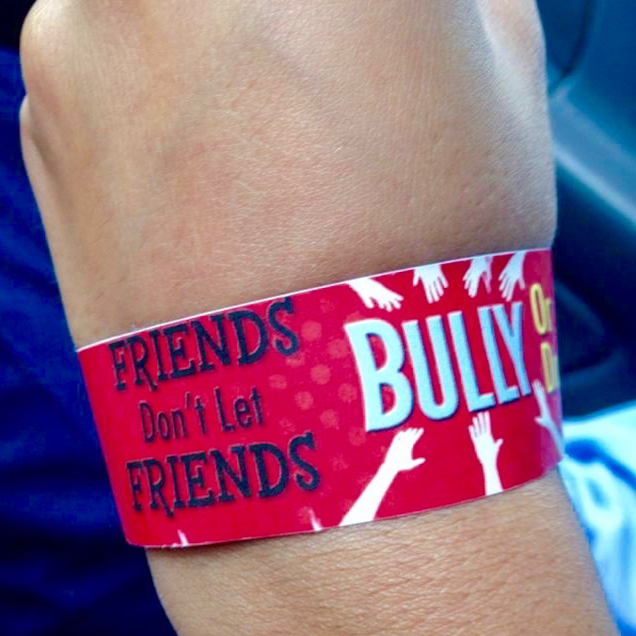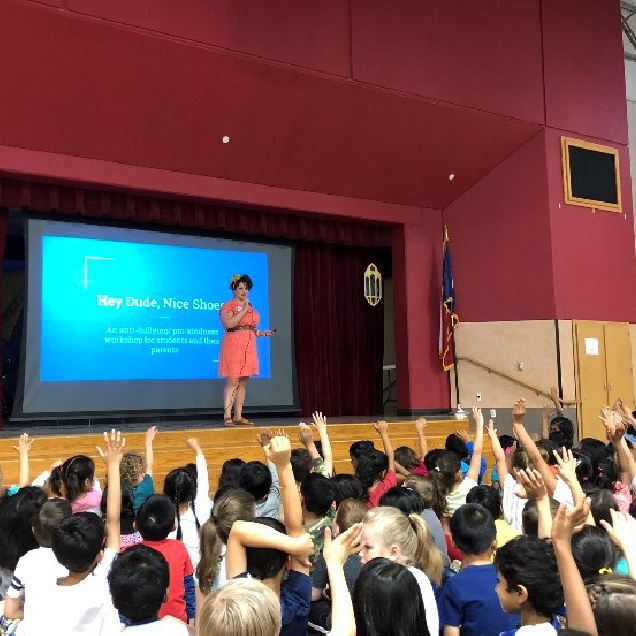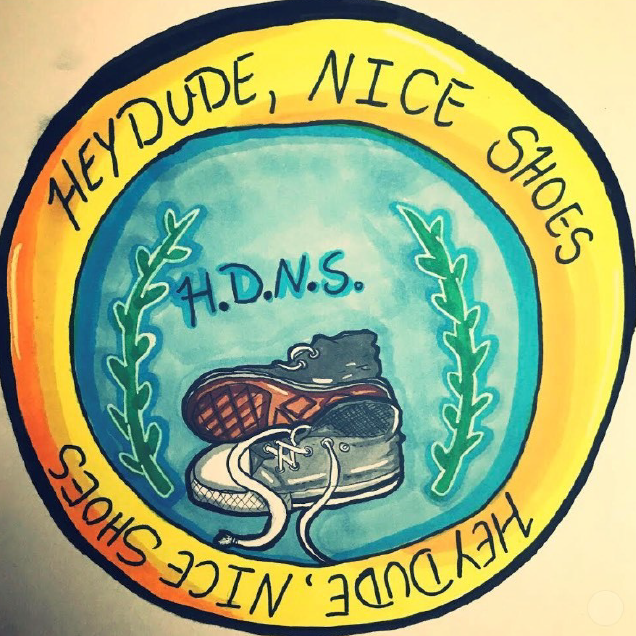Each one of us is fighting a battle that no one else knows about. Battles come in all sizes, from small to immeasurably big. Sometimes I hear about them from a fourth-grade boy who doesn’t look up from his shoes when he speaks. Or from an eighth-grade girl who hugs and doesn’t let go for a minute or two. Or even from the high school athlete who doesn’t seem to have a care in the world, except he does.
I present an anti-bullying/pro-kindness workshop to over 20,000 Texas students each year. It is my goal to speak to as many educators, students, and parents as I possibly can. It is also my hope that I can motivate kids to make changes themselves. I am inspired by this incredible generation of students and how they are going to change the world. I hear so many amazing stories of kindness, generosity, empathy, and acceptance. I also hear of heartbreak and hurt. It is a constant reminder that growing up is astonishingly hard.
One story has stuck with me for years. I met him as I was leaving a campus to grab a cup of coffee before my afternoon workshop. I had my hand on the door to leave when I heard a deep voice calling my name from behind. When I turned around, I had to look up. “Jonah” towered over me at six foot three. He asked, “Would you have lunch with me? I am one of the kids you talk about. I am one of the kids who sits by themselves at lunch.” I sat down across from this young man at an empty table in an otherwise chaotic lunchroom. He informed me no one would sit with us. No one sits there but him. The rest of the cafeteria was standing room only. The thunderdome of high school played around us as he spoke. Jonah shared that his bullying situation got worse in middle school. Everyone always made fun of him for being poor. They would make fun of his clothes and his mother’s car. They would call him dirty even though he would take special care to shower before and after school every day to make sure he wasn’t.
By the time Jonah entered high school, some of his bullies started to throw handfuls of pocket change at him because they knew he would pick it up. Jonah told me he would usually ignore the pennies and nickels, but he would always pick up the quarters. He hated picking them up, but he knew it cost thirteen quarters to wash his little sister’s clothes and that maybe, if he could wash her clothes, no one would call her dirty or gross either. Maybe no one would know she was his sister. Maybe no one would know she was poor. As we sat in an otherwise crowded lunchroom, no one stared at us or stopped to say hi. No one sat at our table, even though there were few other seats. I felt like we were invisible.
“A simple act of kindness might not change the whole world for everyone, but it can change at least one person’s world.”
The next day I met with students from the school determined to make their campus a softer place. They formed a Kindness Club and we spent the afternoon brainstorming youth-led kindness initiatives. The air was electric with positivity and hope, but I couldn’t shake Jonah’s story. I asked one of the leaders of the group if they knew Jonah. They paused and then recalled he was in their English class the year before. I asked them to tell me about him. They shrugged and said the only thing they knew was that people threw change at him. As the words left their mouths, I saw realization wash over their faces. Their indifference had made Jonah seem invisible. The students on campus saw the behavior towards Jonah day after day and remained silent. It was just something that happened. It just wasn’t happening to them. It was just part of the thunderdome.
I often tell students, “If you say nothing, it means you approve.” So often the least likely person to do or say anything about bullying is the person being bullied. How different would it have been if maybe the very first time someone threw change at Jonah the best friend of that person told them to stop? How different would it have been if someone paused to help or reported the behavior? How different would it have been if someone sat down at that empty lunch table once in a while?
The students from this campus were incredible kids. They desperately wanted to change the world in such huge ways. Hearing their dreams on how to make a kinder world was inspiring. It was shocking to them that they didn’t need to look much further than their own backyard or lunch table. They just needed to shed their indifference and open their eyes to the blind spots.
I encourage students all over the state to check their blind spots. A simple hello, a borrowed pencil, or being a friend are all ways to create a softer space. A simple act of kindness might not change the whole world for everyone, but it can change at least one person’s world. If we all take a moment to look around and check our blind spots, we will discover that no one is invisible and the change we want to see in the world might be as simple as sitting down at a lunch table.
As we begin another school year, sit down and talk to your students about the importance of kindness. Talk to them about people who may be different. Talk about ways to be kind. Talk to your students about how to confront their friends if they make hurtful decisions. Some of these conversations are tricky to navigate. But we, as parents and teachers, owe it to our children to have them. By enabling our children to be the same kids who say hello or sit at the lunch table, we are helping to transform all campuses into softer places.
Growing up is hard work. There is no instruction manual. We have to write it as we go along. But for me, Jonah’s story became its own chapter.






